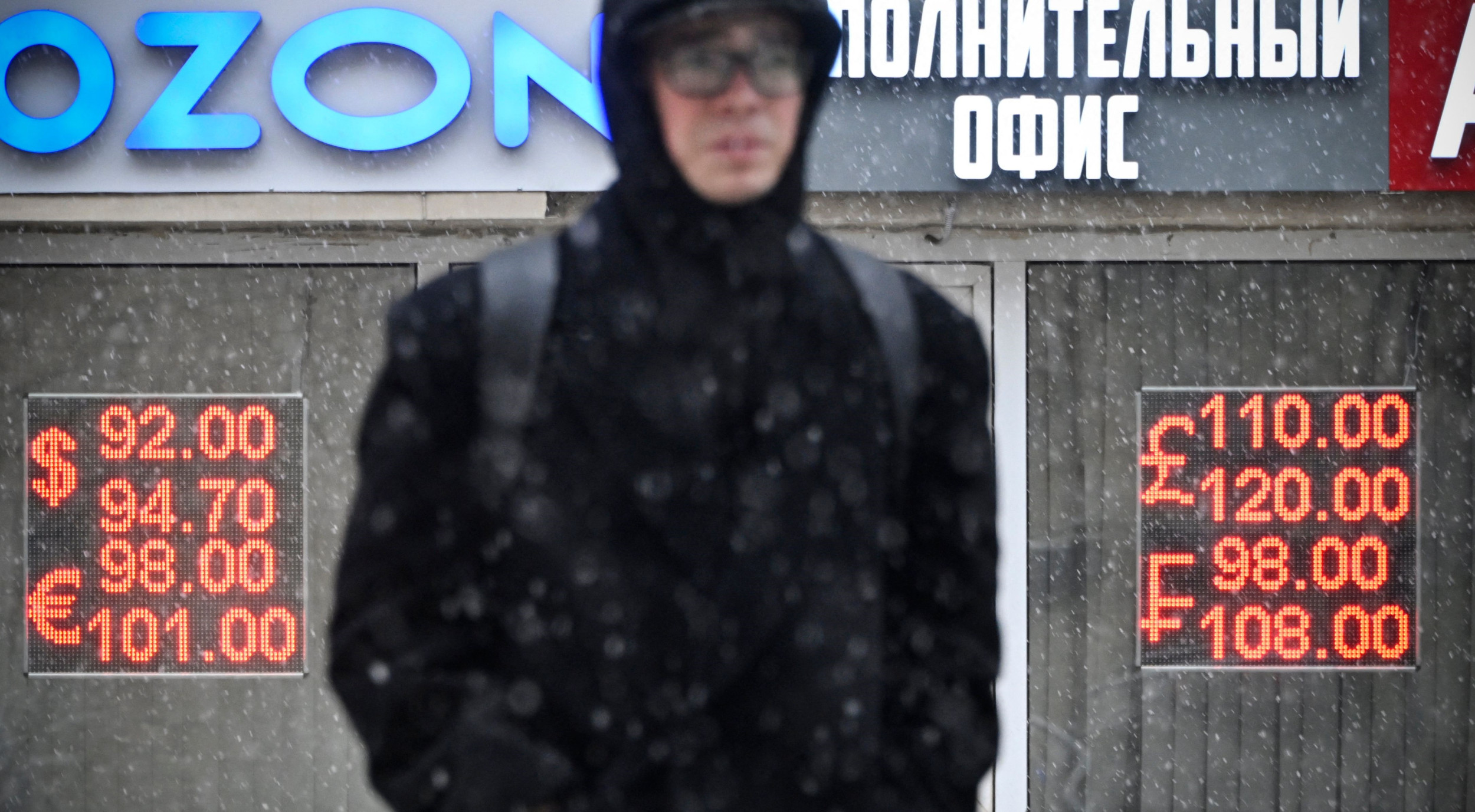Uncommon Knowledge
Newsweek is committed to challenging conventional wisdom and finding connections in the search for common ground.


The Russian economy’s share of global gross domestic product is expected to decline over President Vladimir Putin‘s fifth presidential term to reach its lowest level since the end of the Soviet Union, the latest figures from the International Monetary Fund show.
Russia’s economy has shown resilience in the face of Western-led sanctions imposed after Putin began a full-scale invasion of Ukraine in February 2022, which sought to isolate Moscow from the global financial system and cut its funding for the war.
In April, the IMF upgraded its forecast for Russia’s economic growth to 3.2 percent in 2024—almost triple the 1.1 percent growth it had predicted in October 2023. The updated figure, which is higher than the GDP growth forecast for the U.S. and many other Western countries, raised questions about the effectiveness of sanctions.
However, other IMF data shows that while Russia’s economy is expected to grow, it may not increase as much as other countries’.
New IMF figures predict Russia’s share of global GDP will shrink between now and 2029. The country’s GDP share is expected to increase slightly in 2024 to 2.948 percent, up from 2.947 percent in 2023. But from then until the end of the decade, Russia’s share of the global economy is set to gradually decrease.
In 2025, according to the IMF data, Russia’s share of global GDP will begin to shrink, falling to 2.908 percent. In 2026, its GDP share is expected to be 2.855 percent, and then 2.803 and 2.754 percent in the following two years. In 2029, the year before Putin’s presidential term expires, Russia’s share of global GDP is expected to drop to 2.706 percent.
The forecast figure is less than the previous low of 2.83 percent, recorded in 1998—the year Russia, under President Boris Yeltsin, defaulted on its debt and sparked a financial crisis. Newsweek has contacted the Russian Financial Ministry for comment via email.
According to Rosstat, a Russian government statistics agency, the country’s economy has faced turbulence but rebounded more strongly than expected in 2023, with a GDP growth of 3.6 percent.
This growth is expected to continue this year, driven in part by a significant increase in military spending and trade with China, oil export volumes holding steady and increases in corporate investment and private consumption.
While robust growth is predicted for this year, helped by the Kremlin earmarking 10.8 trillion rubles ($115 billion) for defense spending, Russia’s GDP growth is expected to dip sharply from 3.2 percent in 2024 to 1.8 percent in 2025, according to the IMF.
Russia also faces a significant labor shortage in parts of its economy, exacerbated by the mobilization of hundreds of thousands of soldiers and the exodus of men of fighting age seeking to avoid the draft.
In 2023, Russia’s Central Bank hiked interest rates to 16 percent to curb inflation—which, at 7.8 percent, remains stubbornly high.
Newsweek is committed to challenging conventional wisdom and finding connections in the search for common ground.
Newsweek is committed to challenging conventional wisdom and finding connections in the search for common ground.